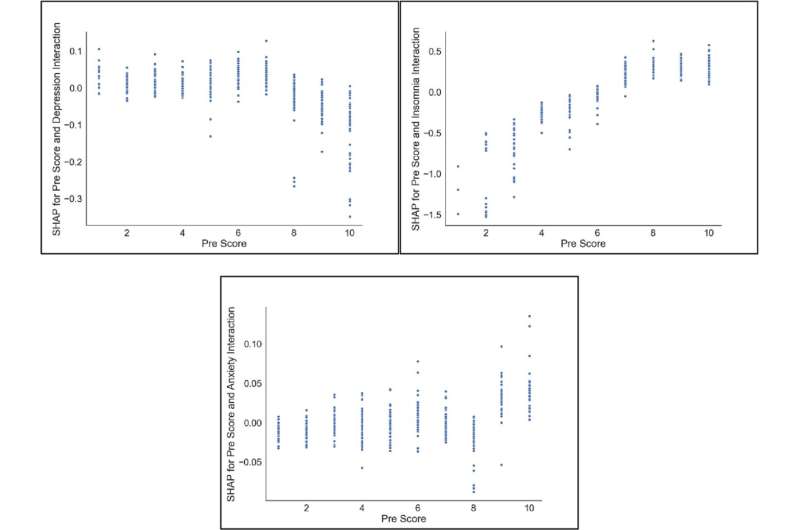February 27, 2023 report
This article has been reviewed according to Science X's editorial process and policies. Editors have highlighted the following attributes while ensuring the content's credibility:
fact-checked
trusted source
proofread
Study shows effectiveness of cannabis on mental illness may depend on severity of symptoms

A small team of mental health care researchers from St. Joseph's Healthcare Hamilton and McMaster University, both in Canada, has found evidence that suggests the effectiveness of cannabis for treating mental illnesses such as depression and insomnia may depend on the severity of symptoms. In their study, published in the journal Comprehensive Psychiatry, the group analyzed data from a group of Strainprint mobile app users.
Prior research and anecdotal evidence have suggested that cannabis may reduce symptoms for some people experiencing mental health problems. In this new effort, the team in Canada studied the impact of cannabis on people experiencing depression, insomnia, excessive irritability, PMS, PTSD and intrusive thoughts.
To that end, they obtained access to data from people with such mental illnesses who regularly use the app Strainprint. The app allows users to record their type of illness, their level or degree of symptoms, concentrations of cannabis they are using for treatment of their illness, the product they use and its mode of use (edible, oil, flower, etc.).
After obtaining and analyzing the data from 1,300 adult users and applying an AI model, the researchers found some patterns. They noted that the severity of symptoms could play a role in how beneficial cannabis might be at alleviating symptoms. They found, for example, that many of the users reporting their symptoms as high reported little to no help with depression subsequent to cannabis use. Some, in fact, reported that cannabis made them feel worse.
However, many users who reported minor depression symptoms reported that using cannabis improved their symptoms. In sharp contrast, the opposite seemed to be the case for those experiencing insomnia. Many of the users who reported having minor symptoms found that taking cannabis did little to help them sleep. Many of those who reported severe symptoms, however, found it helped them. The results, the team notes, suggests it might be possible to predict whether taking cannabis might help to reduce some mental health symptoms.
The research team acknowledges that their study was limited and that caution should be used when interpreting their results, especially for those using cannabis products to self-medicate their own mental health problems.
More information: Nirushi Kuhathasan et al, Predictors of perceived symptom change with acute cannabis use for mental health conditions in a naturalistic sample: A machine learning approach, Comprehensive Psychiatry (2023). DOI: 10.1016/j.comppsych.2023.152377
© 2023 Science X Network



















